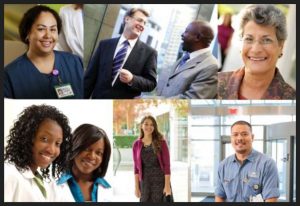KP’s Employee Assistance Program (EAP) recognizes that this is a trying time for everyone.
Starting March 30th, we will offer facilitated group calls to increase your emotional wellbeing and psychological safety.
Common Topics that Could be Addressed:
- Coping strategies to deal with uncertainty, anxiety, and stress related to COVID-19
- Strengthening social support networks in times of social distancing measures
- Using mindfulness, kindness, and gratitude as an antidote to anxiety and burnout
- Simple things to build resilience at work
- And much more!
Calls are every week:
- Monday: 12:30 – 1:30pm
- Wednesday: 3:30 – 4:30pm
- Friday: 8:30 – 9:30am
Drop-in by phone, anywhere, and at your convenience
Call-in numbers will vary by market area.
Visit kp.org/eap for the full schedule.
WHAT IS THE EMPLOYEE ASSISTANCE PROGRAM?
The Employee Assistance Program (EAP) is a service to explore concerns and identify possible solutions,
for all KP employees and their dependent family members who may be having issues such as:
- Work or personal stress
- Loss and grief
- Marital, family or relationship difficulties
- Domestic violence or other abuse
- Childcare referral
- Financial and legal referrals
- Alcohol or drug use, your own or someone else’s
- Anxiety
- Getting along with people at work
- Caregiving for someone in your family
WHAT SERVICES ARE PROVIDED?
 Assessment. Problems often seem complex and hard to define. EAP Consultants can help you clarify concerns, identify changes to make, and recommend priorities for achieving your goals.
Assessment. Problems often seem complex and hard to define. EAP Consultants can help you clarify concerns, identify changes to make, and recommend priorities for achieving your goals.- Problem-solving. The EAP offers a confidential environment to discuss concerns. EAP Consultants will help you to develop a plan to remedy the situation. Sometimes this involves referrals to appropriate resources for specialized help.
- Referral. EAP staff can help you find the right resources. You can get information about a wide range of programs, services, agencies, and practitioners, both within and outside the Kaiser system, from the EAP.
- Consultation. EAP Consultants can confidentially assist managers, union representatives, supervisors, and staff
concerned about another’s work, personal situation, or their department. - Education, training, groups. The EAP offers programs on a variety of issues by request from departments or units,
such as workshops on stress and coping. - Crisis response. EAP Consultants are ready to respond confidentially to individual crises or traumatic events that
affect people at work. EAP also provides individual counseling, management consultations, and group services to
staff after an adverse clinical outcome.
WHAT SHOULD I KNOW ABOUT THE EAP?
- EAP services are available to all Kaiser Permanente physicians, employees, and their dependent family members.
You do not have to be a Health Plan member, and no referral is necessary. There is no charge. - EAP services are strictly confidential. It is solely your decision whether to let anyone know that you’ve used the
service. The EAP Consultant will not share information about you or your visits with anyone unless you give written
permission. - Using EAP is voluntary. You do not need to be in crisis to use EAP. A manager or supervisor cannot make you go as
part of a performance issue. Any participation will not become part of your medical record or personnel file. - EAP Consultants are licensed, trained clinicians who have years of experience working with a wide variety of work-
related and personal issues. - Secure Video Visits are also available through your laptop or mobile phone.
EAP SERVICES FOR WORKING VIRTUALLY
Telephonic and Video Appointments. Go to kp.org/eap to make a telephone or video appointment.
Drop-in Telephonic Support Sessions. Facilitated group support calls to increase your emotional wellbeing and psychological safety. These sessions will begin March 24 (Colorado, Georgia, Mid Atlantic and Washington Markets), and March 30 (California, Northwest and Hawaii Markets)
Common topics that could be addressed:
- Coping strategies to deal with uncertainty, anxiety, and stress
- Strengthening social support networks in times of social distancing measures
- Using mindfulness, kindness, and gratitude as an antidote to anxiety and burnout
- Simple things to build resilience
- And much more
For additional info, please see this PDF document.